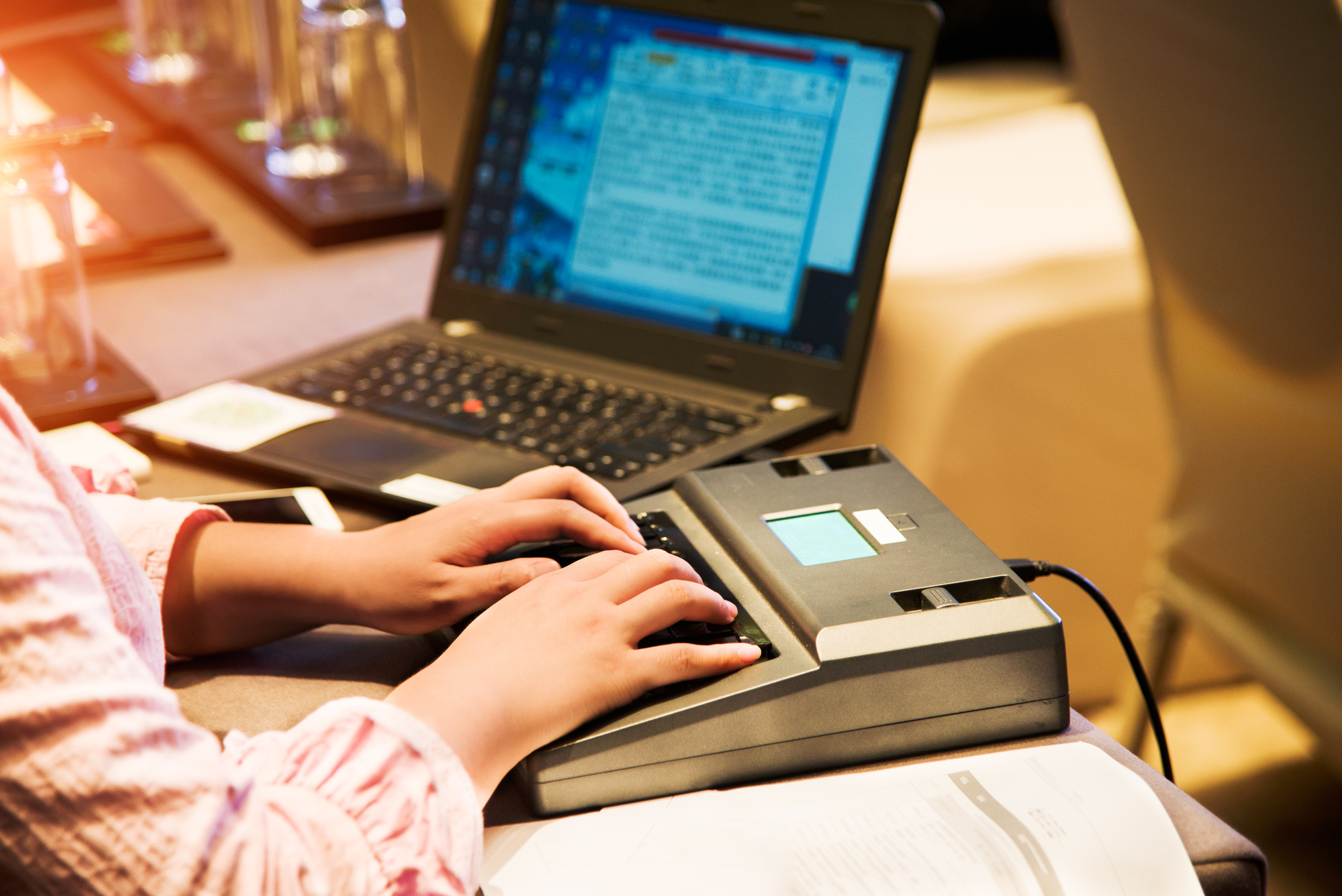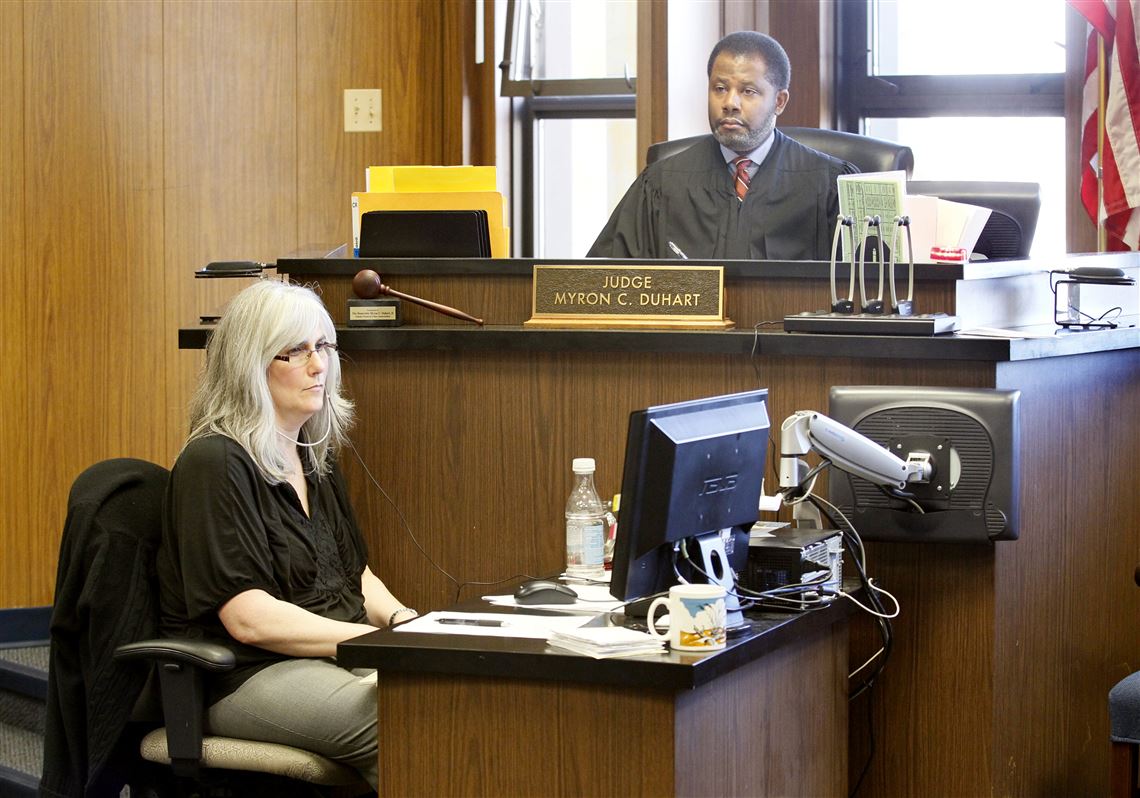Why attorneys depend on durham court reporting for reliable records
The Significance of Court Reporting in Ensuring Accurate Legal Procedures
Court reporting is a critical part of the lawful system. It provides a specific and neutral document of courtroom tasks. This paperwork is vital for appeals and legal research study, guaranteeing that every spoken word is captured accurately. The integrity of legal procedures depends greatly on these transcripts. Nevertheless, the function of technology and evolving methods elevates concerns about the future of court reporting and its influence on justice. What modifications lie in advance?
The Role of Court Reporters in the Legal System
Stenotype reporter play a vital function in the legal system by giving precise and unbiased records of proceedings. Their job guarantees that courtroom discussions, witness testaments, and lawful arguments are consistently documented, acting as a main document for future recommendation. This paperwork is critical for charms, lawful research study, and preserving the stability of judicial procedures. Stenotype reporter are trained professionals experienced in stenography and various recording innovations, allowing them to record talked words with accuracy. They must have a detailed understanding of lawful terminology and court room methods, ensuring that their records meet the criteria required by the judicial system. Furthermore, they may supply real-time transcription solutions, permitting judges and lawyers to accessibility info immediately during process. By meeting these duties, court press reporters help with openness, responsibility, and the fair administration of justice, thereby strengthening the foundational concepts of the legal system.
Guaranteeing Precision in Transcription
Precision in transcription is extremely important for keeping the honesty of legal process. Court press reporters carefully catch every word spoken during tests, hearings, and depositions, ensuring that the authorities record mirrors the real discussion and exchanges that take place. This accuracy is crucial, as even small mistakes can result in significant misconceptions or misconceptions of the law.
To accomplish this degree of accuracy, court reporters employ different methods, consisting of active listening and making use of specialized shorthand approaches. Continual training and experience with lawful terminology also boost their capability to generate dependable records.
Furthermore, the confirmation process is important; reporters frequently evaluate their records for potential inconsistencies before last entry. This diligence not just maintains the high quality of lawful documents however additionally supports the judicial procedure, enabling attorneys and courts to reference precise documents when choosing. Eventually, accurate transcription promotes count on the legal system and guarantees that justice is offered.
The Impact of Modern Technology on Court Reporting
As innovation remains to evolve, its influence on court reporting has come to be significantly substantial. Digital recording systems and speech acknowledgment software program have transformed typical practices, using brand-new devices for capturing talked dialogue. These improvements enhance performance and availability, making it possible for much faster transcription and real-time reporting. Additionally, cloud-based platforms help with smooth sharing of transcripts, boosting collaboration among attorneys.

Ultimately, while modern technology enhances the speed and accessibility of court reporting, it go to these guys highlights the need for human oversight to preserve the top quality and precision essential for legal proceedings. As the field continues to adjust, the combination of innovation will certainly play a crucial role fit the future of court reporting.

The Relevance of Privacy and Integrity
Discretion and stability are basic principles that underpin the technique of court reporting in lawful proceedings (durham court reporting). Stenotype reporter are left with delicate details, needing them to keep discernment and protect the personal privacy of all events included. This confidentiality fosters a relying on atmosphere where litigants and witnesses can talk freely, making certain that the lawful procedure is fair and just
Integrity is just as important; court reporters have to supply precise and honest records, offering as the authorities record of the process. Any type of gap in stability can bring about misconceptions, possibly impacting case outcomes and weakening the judicial system.
Future Trends in Court Reporting
The landscape of court click over here reporting is advancing in response to technical improvements and the changing requirements of the legal career. Emerging trends include the assimilation of expert system and real-time transcription services, which boost performance and precision. Court press reporters are significantly utilizing electronic devices, such as cloud-based systems, allowing for smooth partnership among lawful teams and less complicated accessibility to records.
Additionally, the increase of remote court proceedings has actually prompted the advancement of specialized training for press reporters in online environments. This shift not only adapts to the needs of a globalized legal landscape but additionally addresses difficulties postured by geographical barriers.
The emphasis on availability is driving innovations in transcription formats, making certain that legal documents cater to varied audiences. Generally, the future of court reporting is identified by a blend of typical abilities and contemporary technology, positioning reporters as vital players in the legal process.
Regularly Asked Inquiries
What Certifications Are Needed to Come To Be a Court Press Reporter?
To come to be a stenotype reporter, people usually need a high institution diploma, specialized training in court reporting, effectiveness in shorthand or voice writing, and certification or licensing, depending on the territory and certain job requirements. - durham court reporting
Just How Do Court Reporters Maintain Their Abilities With Time?
Stenotype reporter preserve their abilities with time through continuous education and learning, technique, and engagement with expert companies. They often attend workshops, make use of innovative innovation, and join certification programs to improve their efficiency and adapt to evolving requirements.
What Obstacles Do Court Reporters Face in Their Profession?
Court press reporters encounter countless obstacles, including taking care of high-pressure environments, adjusting to varied accents and languages, preserving technological effectiveness, ensuring accuracy under tight due dates, and managing mentally billed testimonies that might affect focus and performance.
Are Court Reporters Associated With Various Other Legal Setups Besides Court Rooms?
Court press reporters are indeed associated with different lawful setups past courtrooms, including depositions, adjudication hearings, and management procedures. Their competence guarantees precise records in these atmospheres, contributing to the quality and integrity of legal paperwork.
Just How Do Stenotype Reporter Take Care Of Stressful Situations During Proceedings?

Stenotype reporter handle demanding situations by maintaining focus, using effective time administration abilities, and using their training to continue to be calm. They usually exercise deep my explanation breathing and utilize strategies to minimize diversions, making certain precise documents under pressure.
Court reporting is an essential part of the legal system. Court press reporters play a necessary role in the lawful system by offering accurate and unbiased transcripts of process. Ultimately, while innovation improves the speed and access of court reporting, it underscores the demand for human oversight to keep the high quality and accuracy essential for lawful procedures. Privacy and stability are basic concepts that underpin the method of court reporting in legal procedures. Court reporters are undoubtedly included in numerous lawful setups past court rooms, consisting of depositions, mediation hearings, and administrative proceedings.